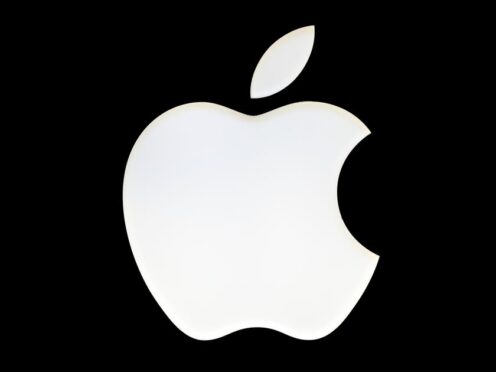
Apple is opening small cracks in the iPhone’s digital fortress as part of a regulatory clampdown in Europe that is striving to give consumers more choices — at the risk of creating new avenues for hackers to steal personal and financial information stored on the devices.
The overhaul which is being rolled out in the European Union on Thursday represents the biggest changes to the iPhone’s App Store since Apple introduced the concept in 2008.
Among other things, customers in Europe can download iPhone apps from stores that are not operated by Apple and can access alternative ways to pay for in-app transactions.
European regulators are hoping the changes mandated by the Digital Markets Act, or DMA, will loosen the control that big tech’s “digital gatekeepers” have gained over the products and services that consumers and businesses use as they become more dominant forces in everyday life.
The measures are taking effect days after EU regulators fined Apple nearly two billion US dollars (££1.6 billion) for thwarting competition in the music-streaming market.
Apple has lashed out at the new regulations for unnecessary security risks to iPhone users in Europe, exposing them to more scams and other malicious attacks launched from apps downloaded from outside its ecosystems and raising the spectre of more unsavoury services peddling pornography, illegal drugs and other content that the company has long prohibited in its App Store.
Despite trying to maintain security safeguards while also adhering to the new rules in the 27-nation bloc, Apple is warning that “the changes the DMA requires will inevitably cause a gap between the protections that Apple users outside of the EU can rely on and the protections available to users in the EU moving forward”.
But some smaller tech companies such as music-streaming service Spotify and video-game maker Epic Games are attacking the way Apple is complying with the DMA as little more than a facade that is making a “mockery” of the regulations’ intent.
“Rather than creating healthy competition and new choices, Apple’s new terms will erect new barriers and reinforce Apple’s stronghold over the iPhone ecosystem,” Spotify, Epic and more than two dozen other companies and alliances wrote in a March 1 letter to the European Commission, the EU’s executive arm overseeing the DMA.
Epic, which is behind the popular Fortnite game, also contends that Apple is already brazenly violating the DMA by rejecting an alternative iPhone app store it planned to release in Sweden. Epic asserted that Apple thwarted its attempt to compete as retaliation for scathing critiques posted by chief executive Tim Sweeney, who spearheaded a mostly unsuccessful antitrust case against the iPhone App Store in the US.
In response, EU regulators said on Thursday that they wanted to question Apple over allegations it had blocked Epic’s app store. Apple was defiant, saying it “chose to exercise that right” to boot the app store based on Epic’s past behaviour.
Europe’s shifting digital landscape is also forcing changes at other technology powerhouses such as Google and Facebook, but the new regulations strike at the core of Apple’s philosophy of maintaining ironclad control over every aspect of its products.
The DMA will see consumers in the EU now get new choices for default browsers and search engines, where to download iPhone apps and how their personal online data is used.
The new rules have broad but vague goals of making digital markets “fairer” and “more contestable”. They are kicking in as efforts around the world to crack down on the tech industry are picking up pace.

Enjoy the convenience of having The Sunday Post delivered as a digital ePaper straight to your smartphone, tablet or computer.
Subscribe for only £5.49 a month and enjoy all the benefits of the printed paper as a digital replica.
Subscribe